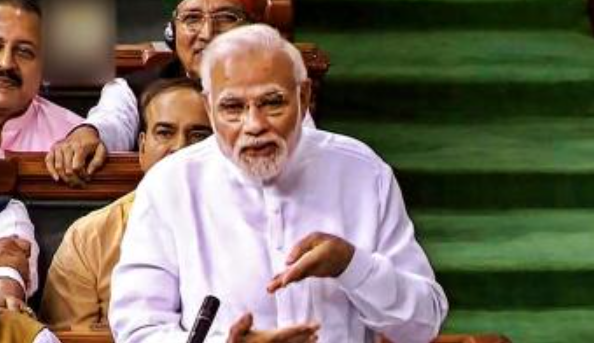This political ownership of capitalism and the private sector is significant, for there is no other way for India to become more prosperous.
Prime Minister Narendra Modi, in the course of his speech in the Lok Sabha on Wednesday, mounted a robust defence of the role of the private sector — and by extension, Indian capitalism — in nation-building. This is an ideological battle that India should have decisively resolved back in 1991 with liberalization and loosening of controls. But the historical legacy of suspicion towards the private sector, the evolution of Indian capitalism since 1991, and entirely antiquated ideological positions that priorities State-led distribution without thought to the processes of wealth creation has meant that, unfortunately, business and profit remain dirty words in the Indian political lexicon.
PM Modi made a set of points. If wealth creators are not encouraged, how will jobs be generated and how will the process of wealth distribution take place? Aren’t private individuals citizens who must be trusted? Will the entire country run on the whims and diktats of the Indian Administrative Service “babus”? This political ownership of capitalism and the private sector is significant, for there is no other way for India to become more prosperous.
For this defence of capitalism to percolate down, two things need to happen. One, pro-business policies must not be seen as policies in favour of select business houses. The emergence of what are akin to monopolies in key sectors has deepened distrust of the market. Indian capitalism will be more credible if it is not associated only with a small set of “national champions”. Two, the resistance to capitalism will diminish if it is seen as leading to both growth and equity. PM Modi has been intellectually honest and shown political courage. The Opposition, particularly the Congress, which launched the reforms, must show the same courage in recognizing, rather than demonizing, the private sector.





